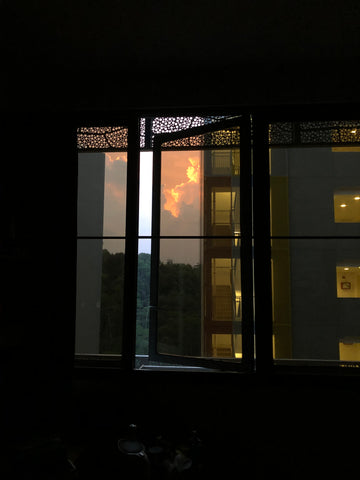Carving Out A Place Of Hope Amidst The Inhospitable

Dear Reader,
“Bataille writes that ‘[t]o write is to go elsewhere. The bird who sings and the man who writes deliver themselves’” (Hollywood, 1996, p. 82).
How are you? Where does this missive find you? I hope the beginning of the new year has been bright. I’m writing this from London, it’s been my first new year with family in three years and I’m sure I’m not alone in this. Not Without Us began three years ago too in March of 2020 as a continued effort by Prof Dan Goodley, Assoc Prof Meng Ee Wong and Dr Victor Zhuang to pay attention to the textures, ingenuities and experiences of disabled peoples in Singapore.
When I proposed a lyric essay on the practices involved in continually negotiating a chronic illness within the context of Covid-19, I wanted to consider the ideas of care and pride around disability and identity, acknowledging the difficulties and tensions around these ideas within the environment of contact tracing, temperature monitoring and social distancing while living in communal halls as a student at NTU. It was written between April and June 2020, and three months pass across the pages as I began running out of crucial medication.
In Illness as Metaphor, Susan Sontag wrote, “[e]veryone who is born holds dual citizenship, in the kingdom of the well and in the kingdom of the sick. Although we all prefer to use only the good passport, sooner or later each of us is obliged, at least for a spell, to identify ourselves as citizens of that other place” (Sontag, 1978, p. 3). I wanted to refigure how we approach disability and chronic illness as a source of knowledge which we socially require to alter our practices of care, community and social engagement in order to survive.
At the corner of the island, in the map’s corner of the world, the chapter became a way to negotiate survival and hiding—about carving out a place for hope amidst the inhospitable. The lyric essay, like a poem, was writing to deliver myself elsewhere. In my room at NTU, I could hear the detonations and live firings from the NS base on the other side of the storm drain, the cats fighting over territory at dusk, the scent of the Singapore Refining Company, the Milo factory, the calls from my family and friends who were still two years away, and my partner’s face that made my phone a world’s glass surface. The durational and self-reflexive essay “—I’m writing my way out—and this is a place of refuge—: A Poetics of Illness and Disability” came out of the desire to acknowledge the polygenres of our lives, the entanglements and enmeshments we have with one another, the land, as well as digital spaces, and industrial systems that we interact with at both a micro and countrywide level.
While the threat of contagion did and does still loom, especially for immunocompromised communities, I wanted to find the places this passport gave me access to from inside the kingdom of the sick. What might an inclusive social praxis give access to? How can we approach disability not as a lack but as a source of abundance, connection and insight? The title of Not Without Us takes after the landmark rallying cry, “nothing about us without us” which was used by disability rights activists in the 1990s to communicate the idea that no policy should be decided by any representative without the full and direct participation of members of the group or groups affected by that policy.
If our survival as a whole society is to be guaranteed, please, sing with me; elsewhere is the future we deliver ourselves into all together.
Take care, keep healing.
Very best wishes,
Cat. 🐾
Contributor to Not Without Us: Perspectives on Disability and Inclusion in Singapore
p.s. I mean it, write to me.
References:
Hollywood, A., 1996. Bataille and Mysticism: A "Dazzling Dissolution". Diacritics, 26(2, Georges Bataille: An Occasion for Misunderstanding), pp. 74-85.
Sontag, S., 1978. Illness as Metaphor. 1st ed. New York: Farrar, Straus and Giroux
To receive more thoughtfully-penned weekly letters freshly delivered to your mailbox, subscribe to Attunement here: bit.ly/ethosletters






